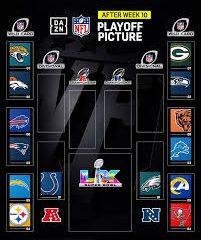The Role of Ringers in Sports: Understanding Their Impact

Introduction to Ringers
The term ‘ringer’ has made its way into the sports and gaming lexicon, particularly within amateur leagues and casual competitions. Understanding what a ‘ringer’ is and its implications in various sports is crucial for players, organisers, and fans alike. A ringer, in essence, refers to a participant who is often more skilled than others in a given sporting context, typically introduced with the aim of misleading other competitors.
Defining Ringers
In its most common usage, a ringer describes an individual who unfairly enhances a team’s chances of winning by substituting a highly skilled player for an ostensibly amateur one. This practice is observed in sports such as golf, where a player of higher ability might enter a lower-level tournament under a false identity to win prizes or accolades. Similarly, in cricket and football, rings can play the role of secret weapons, turning matches in favour of the team employing such strategies.
Recent Events and Implications
Recently, the introduction of stringent regulations in community sports leagues has aimed to tackle the issue of ringers. In a local football league in Essex, officials have begun issuing bans and fines to teams found exploiting this loophole, where skilled players had participated under aliases to secure victory for their teams and manipulate league standings. The controversy sparked debate among sports enthusiasts and administrators alike, highlighting the perceived integrity of amateur sports versus competitive edge.
The Significance of Addressing Ringers
Exposing ringers helps maintain fairness and spirit in sports, ensuring that competitions celebrate genuine skill and effort. As the concern over ringers grows, grassroots organisations are implementing better checks and balances to verify participants’ identities and skill levels. This is essential in preserving the amateur spirit that drives many local leagues. For players, understanding this term also cultivates respect for their competitors and integrity within their sporting communities.
Conclusion
In conclusion, while the term ‘ringer’ denotes an unfair advantage that can skew the spirit of competition, its growing recognition has cemented the importance of fairness in sports. Authorities are becoming more vigilant about tackling this issue, emphasising that sporting events should celebrate genuine talent and camaraderie. As the landscape of sports continues to evolve, the role of ringers will remain a relevant topic for players and fans, shaping the future of community-level competitions.








